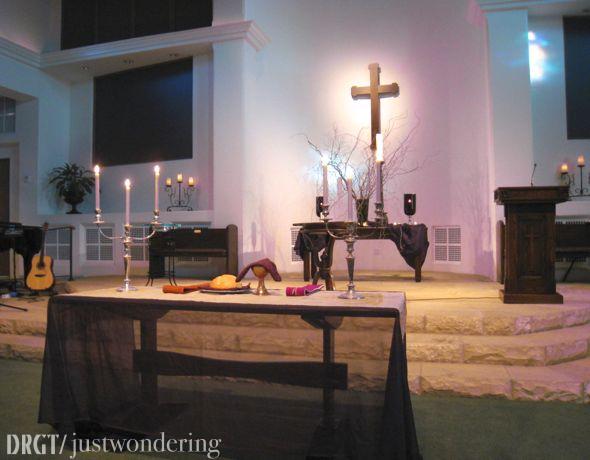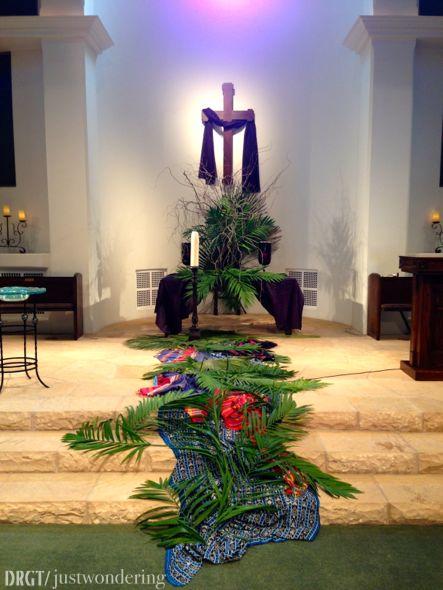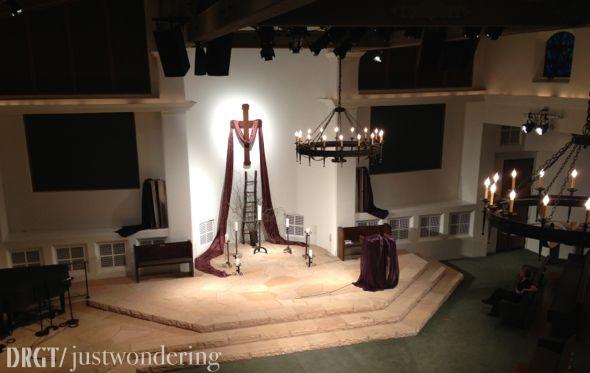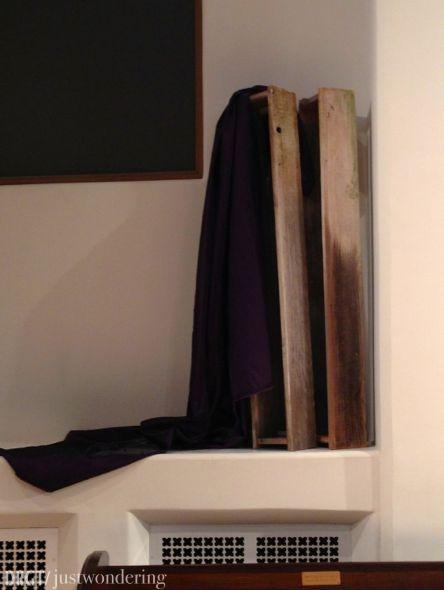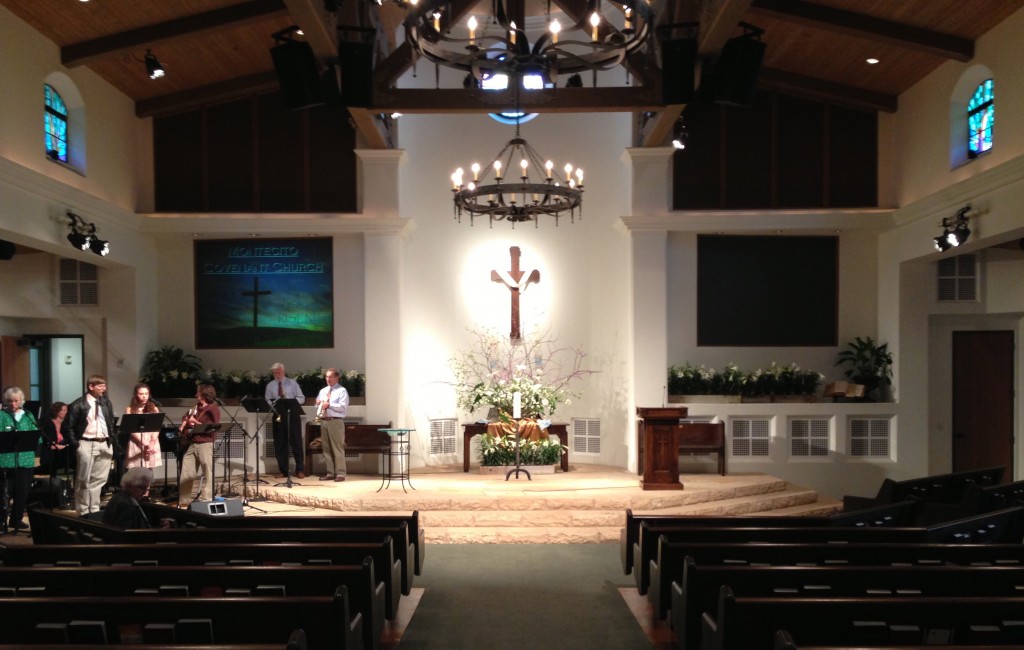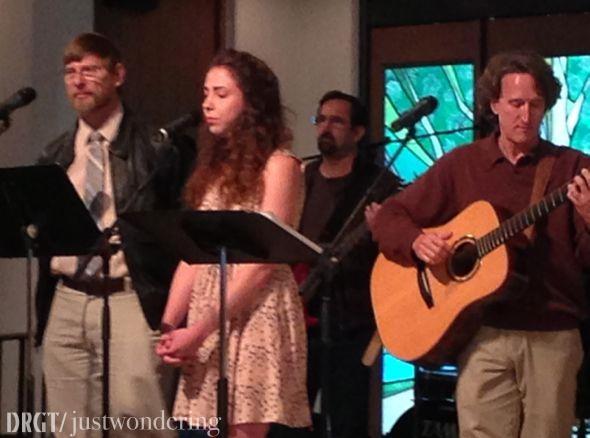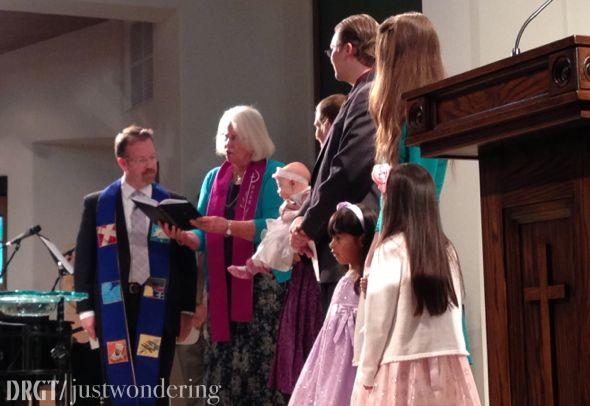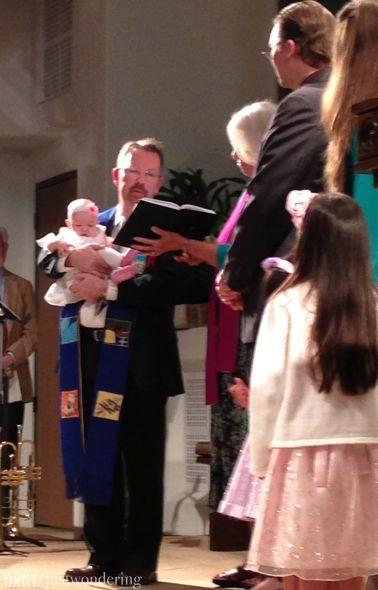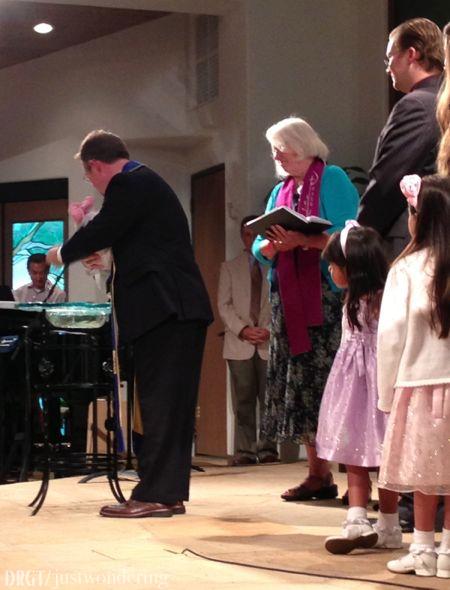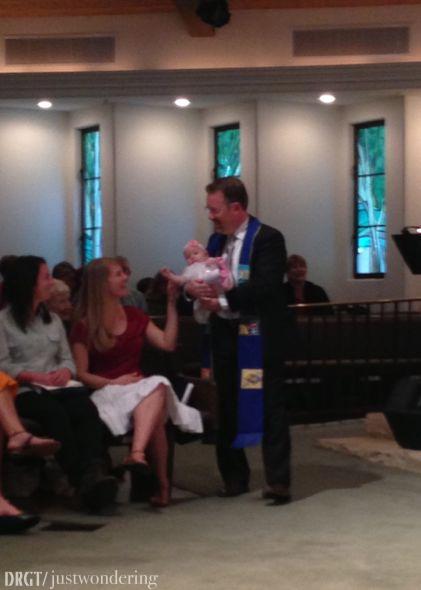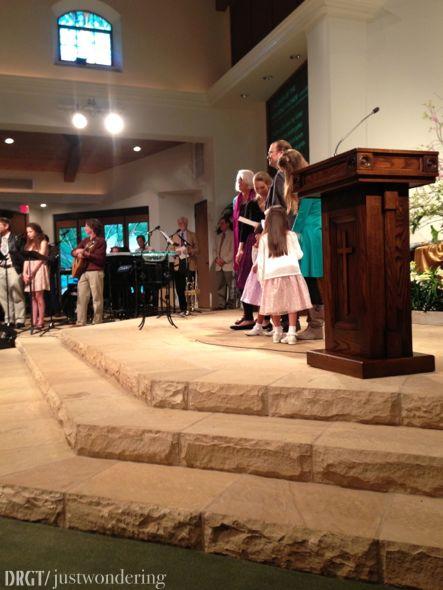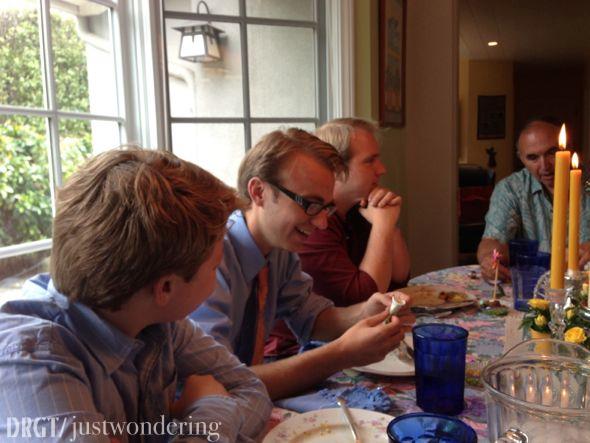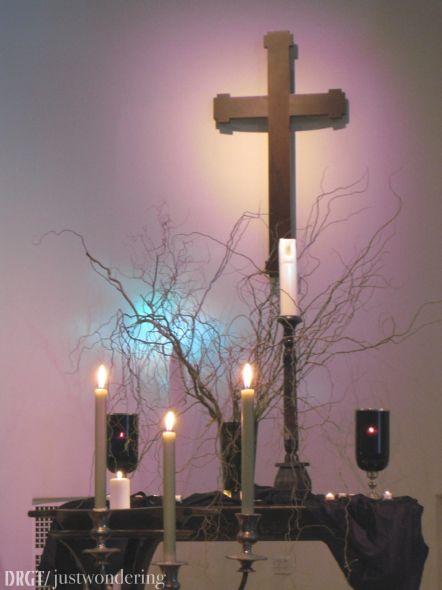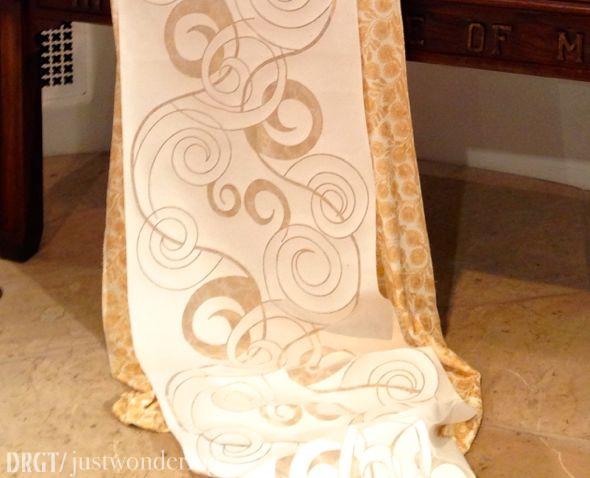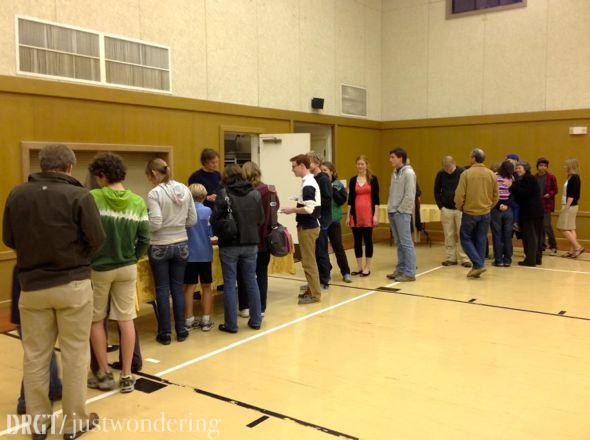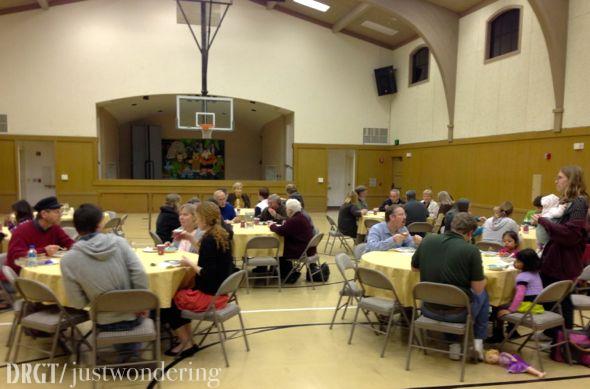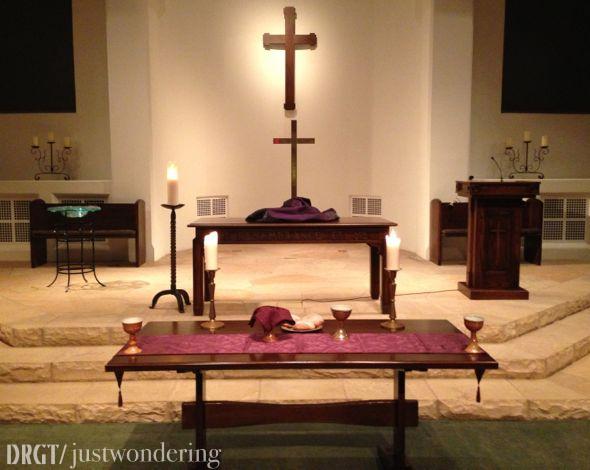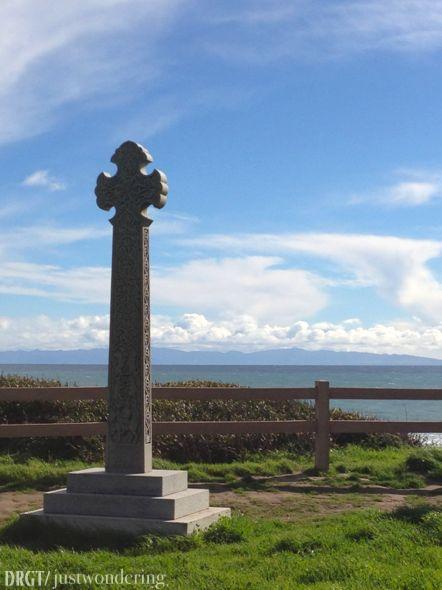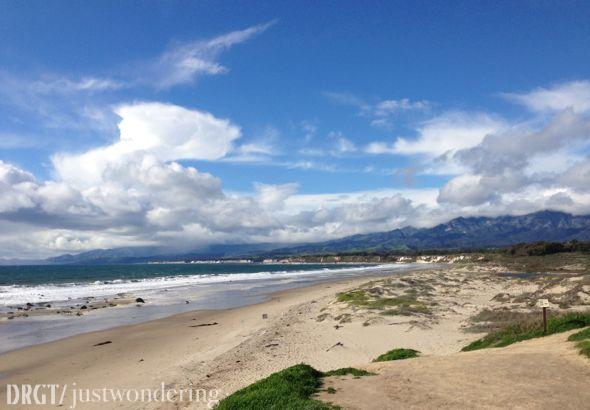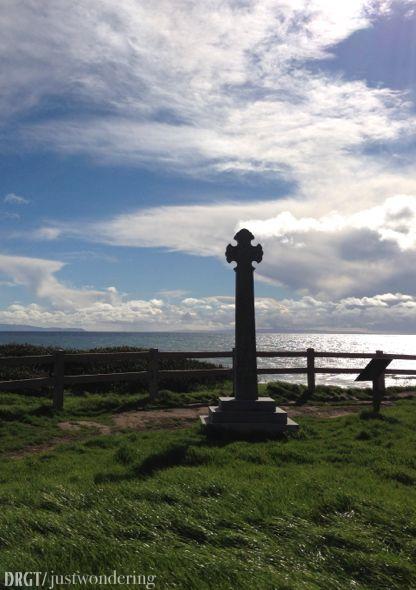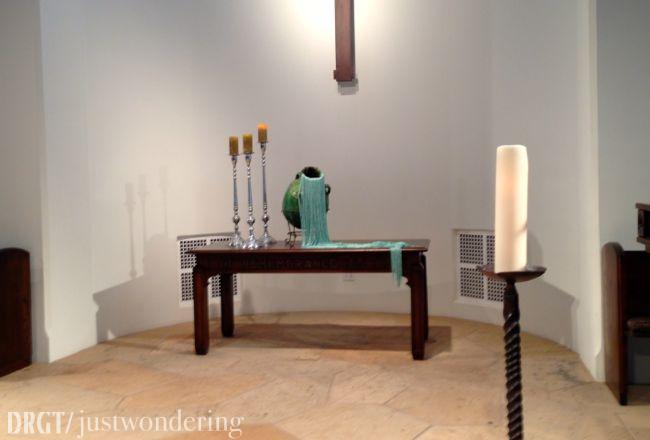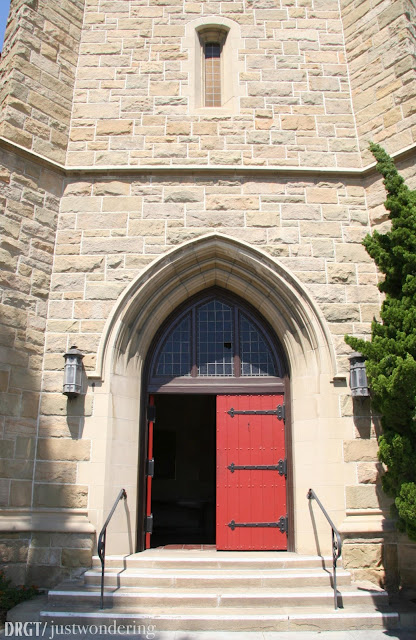Continuing a summer series of sermons, posting them on Wednesdays to honor
a tradition of midweek services, long since gone.
This one was preached in the summertime about six years ago
and it is one of my favorites. Every sermon I’ve ever preached
has been preached to me first — and this one hit me where I live.
I am so grateful for a strong, healthy, loving Savior,
who is bigger than my fears and refuses to be categorized as ‘nice.’
What Are You Afraid Of?
Luke 8:26-39
by Diana R.G. Trautwein
A sermon preached at Montecito Covenant Church
June 24, 2007
Things that go bump in the night. Scary stories or movies. Invaders who do harm to hearth and home. Kidnappers, car-jackers, rapists or mercenaries. Cancer, heart disease, multiple sclerosis. The list of things that frighten us sometimes seems endless, don’t you think? There is something to be frightened about on the news or in the papers every single minute of every single day; there are hard and horrible things happening in our neighborhoods, around the corner, across the street. Scary stuff happens to our friends, our families, even to us.
Honestly, it is a wonder that we ever leave our homes at all – except for all the scary things in that place! Spiders in the corner, bathtubs to drown in, showers to slip in, steps to fall down, windows to be broken into, doors to be jimmied….there are days when it feels like they’re (whoever ‘they’ may be) out to get us! Days when the onslaught of dangerous forces from without makes us want to curl into a fetal position and stay under the blankets all day long.
You think I’m exaggerating – and perhaps I am. But here’s something I know to be true and not an exaggeration at all. If you think the stuff that’s outside of us is really, truly scary: just wait ‘til you take a good, long look at the stuff that’s inside of us – that stuff can shiver your timbers, and send you scuttling back to bed for good.
That is, if we’re brave enough to take more than a peek at what’s in there. Most of the time, it’s easier, and much, much safer, to look to the outside of us . . . and then get to work and build up those walls of resistance, dream up those plans for escape, invest in those security systems, add that extra alarm to our car, buy more insurance for our possessions. The inside of us is much harder to manage, much more difficult to protect, much more terrifying to examine.
There is a series of stories that have come down to us from the 13th century about a fabled wise fool named Nasrudin. One of my favorites is this one, and I found it in this great little book titled, The Gift of Being Yourself: The Sacred Call to Self-Discovery, written by Dr. David Benner :
“Nasrudin – the protagonist of many Middle Eastern, Greek and Russian folktales – was approaching the door of his house one night when he suddenly realized he had lost his key. He tried to look around for it, but the night was so dark he could hardly see the ground. So he got down on his hands and knees and examined the ground where he was standing. But it was still too dark to see anything. Moving back toward a street-lamp, he again got down and began a meticulous examination of the area.
“A friend came by and, noticing him, asked what he was doing. Nasrudin replied, “I lost my key and am looking for it.” So the friend too got down on his hands and knees and began to search.
“’After a while, the friend asked, ‘Do you remember where you might have lost the key?’ “’Certainly,” answered Nasrudin. ‘I lost it in my house.’ ‘’They why are you looking for it out here?’ Because,” answered Nasrudin, “the light is so much better here.””
It’s so much easier to look outside for things, and then try to arm ourselves against all the scary, hard stuff in life that comes at us from ‘out there,’ than it is to look inside, to examine the tough, scary truth about ourselves, as we really are, and by God’s grace and through his powerful word of authority, become who we can be. It’s that internal look, that interior examination, that wrestling with the demons within that can make the difference between a life that’s lived in fear and denial and a life that’s lived in power and hope.
Our gospel story for today outlines this powerful truth in some interesting and thought-provoking ways. Will you hear the word of the Lord as it is recorded for us in the gospel of Luke, chapter 8, verses 26-39:
They sailed to the region of the Gerasenes, which is across the lake from Galilee. When Jesus stepped ashore, he was met by a demon-possessed man from the town. For a long time this man had not worn clothes or lived in a house, but had lived in the tombs. When he saw Jesus, he cried out and fell at his feet, shouting at the top of his voice, “What do you want with me, Jesus, Son of the Most High God? I beg you, don’t torture me!” For Jesus had commanded the evil spirit to come out of the man. Many times it had seized him, and though he was chained hand and foot and kept under guard, he had broken his chains and had been driven by the demon into solitary places.
Jesus asked him, “What is your name?”
“Legion,” he replied, because many demons had gone into him. And they begged Jesus repeatedly not to order them to go into the Abyss.
A large herd of pigs was feeding there on the hillside. The demons begged Jesus to let them go into the pigs, and he gave them permission. When the demons came out of the man, they went into the pigs, and the herd rushed down the steep bank into the lake and was drowned.
When those tending the pigs saw what had happened, they ran off and reported this in the town and countryside, and the people went out to see what had happened. When they came to Jesus, they found the man from whom the demons had gone out, sitting at Jesus’ feet, dressed and in his right mind; and they were afraid. Those who had seen it told the people how the demon-possessed man had been cured. Then all the people of the region of the Gerasenes asked Jesus to leave them, because they were overcome with fear. So he got into the boat and left.
The man from whom the demons had gone out begged to go with him, but Jesus sent him away, saying, “Return home and tell how much God has done for you.” So the man went away and told all over town how much Jesus had done for him.
Oh my, what a story. It comes second in a series of four stories in Luke’s gospel, four stories which tell us about the authority and power which Jesus had in several different realms of human existence. It directlyfollowsthe story of Jesus calming the stormy sea, simply by the power of his word. It comes justbeforetwo interwoven miracle stories – one illustrating Jesus’ power to heal chronic illness and one illustrating Jesus’ power over death itself.
In this story, Jesus has just calmed the chaos of the storm, thereby taming the beasts in the natural, created world, and now he proceeds to calm the chaos in this strange, wild, frightening beast of a man who wanders the tombs.
The presence of the swine in this story tells us that Jesus and his band of followers have entered Gentile territory; they’ve crossed the Sea of Galilee and entered a new and different place, only to be immediately accosted by a man described as demon-possessed.
We can’t even begin to understand all the layers of meaning implicit in the use of the word ‘demons’ in this story about Jesus and his word of authority. 21st century westerners are uncomfortable with the idea of evil forces inhabiting human persons. Many, if not most, people walking the streets of Santa Barbara this morning would deny their existence outright. Yet missionaries who carry the gospel to less sophisticated cultures than our own, tell stories that sound a whole lot like this one. Perhaps what one commentator said is true, “Satan has less need to manifest himself openly in a culture that denies his existence.”
Yet despite our own culture’s struggle with the idea of Satan or the devil or his demons, no one living in the here and now can deny the existence of evil in our world and in ourselves. A great old southern preacher named Fred Craddock says, “All names of the enemies have been changed but the battle still rages.” And while we may not know too much about the kind of demon possession that is pictured here, we certainly know about our own personal demons. Those things that cripple us and trip us up, big-time. Those addictions and behaviors and thought processes and reactions that hold us captive, that keep us wandering in the tombs, lonely and frightened and disconnected from our best selves, disconnected from God.
A look at just a few recent news headlines reminds us of this truth:
Last week, police around the world arrested hundreds of people involved in the internet trafficking of child pornography. 31 children – so far – have been released from captivity, some of them involved in horrific, sexual abuse, shown world wide through live video streaming.
Over 6 million Americans aged 12 and over have used crack cocaine at least once in their lives.
5 percent of high school students have used crystal meth.
A US Dept of Health and Human Services bulletin from January of last year, showed that 11% of 8th graders, 22% of 10th graders and 29% of high school seniors had done intense, heavy, binge drinking within the two weeks prior to the survey being taken. Now, consuming large amounts of alcohol at any age is dangerous, but it is especially calamitous for adolescent brains, causing permanent damage and leading to a lifetime of risky, dangerous behavior patterns.
Every one of these terrifying statistics has at its base the reality of demons within. Because we live in the computer age, we can cover up the mess in there a tad better than the Gerasene man was able to do. The pedophilia ring that was broken up last week named it’s website “Kids: the Light of Our Lives,” for heaven’s sake.
No, most of our ‘demons’ don’t cause us to wander the cemeteries without our clothes on, yelling at the top of our lungs.
Yet the truth is that every one of us in this room deals with now, or has dealt with at some point in the past, our own particular and unique set of demons. We each have our shadow side, those areas of pain and difficulty that need to be named and then opened to the healing power of Jesus so that we, too, might become those who are, ‘clothed and in our right minds, sitting at the feet of the Lord.’
Please hear this wonderful truth, however: whatever it is that you’re dealing with inside, it is not outside the reach of Jesus’ authority to resolve.
Look at what happens in our story. Jesus sails into foreign territory, and makes it his own. He remains completely calm and unflappable throughout his confrontation with the demon-possessed man, never raising his voice, never saying or doing violence of any kind. He immediately takes charge of this chaotic and chronic situation, commanding the evil forces to leave the man alone. Those forces recognize the authority of Jesus, calling him “Son of the Most High God,” and begging for mercy. Jesus calls the demon by name and exercises complete authority over it. In an almost humorous turn of events, Jesus agrees with the demons to send them into the nearby herd of pigs (one unclean thing into another, I guess!), clearly not allowing them to dictate their ultimate destination. They end up in the abyss, despite their pleas to the contrary.
Jesus is in charge, from beginning to end, and his authority over the evil that dwells inside of us human creatures is complete and sure.
The man himself is able to witness the resolution of his long-term suffering and imprisonment – he can see those pigs running right off the cliff into the water, and he knows that his healing from the inside out has been accomplished. He literally becomes a new man. Discovered by the frightened townspeople to be – not a raving madman, haunting the lonely, desolate places outside of town – but a disciple – (the language of ‘sitting at Jesus’ feet’ is a dead giveaway to his new status) – now they find a learner, a quiet, calm, clear-headed, fully clothed, fully released, God-possessed human being.
Wow! Time to bring out the fatted calf, right? The people in the town must have wanted to have a big, old party, don’t you think?
Well . . . not exactly.
Apparently, the evil they knew was far less frightening to them than the power they didn’t know. So their primary response to this strange Jewish man from the other side of the lake is one of fear, perhaps, even of terror. Because the authority of Jesus is a very scary thing. When Jesus comes on the scene, he shakes things up. He rattles the cage, he upsets the status quo, he does startling things, he can’t be tamed, or put in a box, or sent to the tombs to wander around alone.
Too much modern Christianity forgets this truth. We’ve tried pretty hard to make Jesus a really nice guy, with a nice smile and great hair. He loves little kids (and indeed, he does), he hunts for little lost lambs (and indeed, he does), he tells quaint stories, he helps people out a lot, he’s just a really great guy, you know?
Look again. This is one gutsy guy, not intimidated by the crazy man wandering around naked in the graveyard. This is a guy who talks right back to the demons, who clearly is in charge here, who is willing to do a daring and economically threatening thing like destroy an entire herd of pigs to salvage one human life. This is a demanding guy, who tells the newly re-born Gerasene that, no, he cannot leave his home and follow him. Rather, this new disciple must stay put and be a witness in his own hometown. He must tell the story of what God has done for him – he must go back to the town from which he had been ejected and isolated, back to the people who were even more frightened by the dramatic change in his demeanor and behavior than they were by his previous lunacy, back to the very ones who wanted him kept at a safe distance, outside the city gates. And he must tell them of freedom and of healing and of God’s power.
These are not the responses, these are not the actions, these are not the words of a “really nice guy,” a really “great guy.” Maybe this air-brushing we do so easily and so frequently is one of the ways in which we, too, ask Jesus to leave, to get away from us, because we cannot understand his power, we cannot accept his authority. We domesticate him right out of the picture. Dorothy Sayers, British writer and theologian from the early 20th century, put it this way:
“The people who hanged Christ…never accused him of being a bore. On the contrary, they thought him too dynamic to be safe. It has been left for later generations to muffle up the shadowing personality and surround him with an atmosphere of tedium. We have very efficiently pared the claws of the lion of Judea, certified him ‘meek and mild,’ and recommended him as a fitting household pet for pale curates and pious old ladies.”
May God forgive us for trying to smooth off the brave, outrageous edges of our magnificent Savior!
If we are to face our own demons, we need Someone who is strong and unflappable, One who is centered and authoritative, a Friend to stand with us, to go before us, to show us the truth about ourselves, to name that demon within and to tell it, in no uncertain terms, exactly where it can go!
Jesus is that Friend. Thanks be to God.
Let us pray:
Holy God, Brave Savior, Powerful Holy Spirit,
Oh, how we thank you for this story. For the clear evidence of your deep desire for our wholeness, for the word of authority that only you can speak to the demons within. They have lots of names, Lord, and sometimes we’re too frightened or too proud to acknowledge their presence. Deep and dark sexual fantasies, addictions to alcohol, or pornography, or drugs, or food, or shopping, or gambling. An untamed tongue that too often flares in anger, or cuts in criticism, a spirit of despair that feels increasingly familiar and comfortable, an unwillingness to extend ourselves in your name to people we find scary or odd, a spirit of lethargy or apathy that keeps us at a distance from people or projects that would bring us good and build your kingdom, a debilitating shyness that inhibits our ability to offer that cup of cold water, a refusal to think of those from other cultures or other races as creatures also made in your image.
You know us better than we know ourselves, Lord. Show us what we need to name. By your grace, enable us to release authority over our demons to you, embolden us to ask for help, if we need it – medical or psychological or recovery help – all of them instruments of your healing power – then continue to heal us from the lingering aftereffects not only of our own demons, but also of the denial, of the wrong behavior, of the wrong choices that such demons produce in us. Then we will gladly bear witness to all that you have done for us, O Lord, because of Jesus, in whose name we pray, Amen.










